Donald Hoffman states that when “we peek behind the icons [we’ve] entered the province of philosophy and religion”. So does that mean that his idealism (or “conscious realism”) is religious and philosophical (i.e., not scientific) after all?
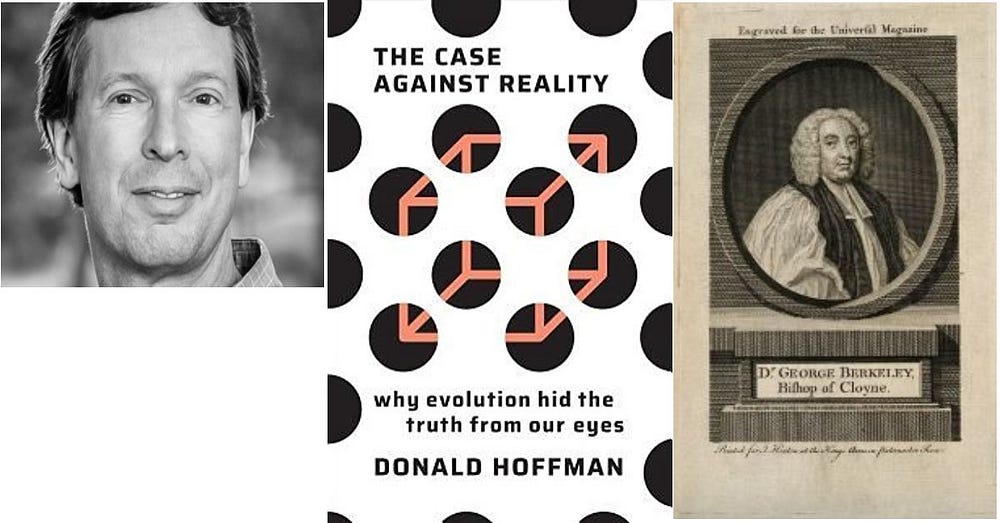
Cogntive psychologist Donald Hoffman states that when “we peek behind the icons [we’ve] entered the province of philosophy and religion”. Yet his words make it seem that when he (i.e., not “we”) peeks behind the icons, his doing so is a mere side issue. Hoffman also makes it seem (at least in those words) as if philosophy and religion are largely irrelevant to his writings on what he calls “conscious realism” (with its many mentions of “mathematical models”, evolution, quantum mechanics and whatnot).
Yet one only needs to watch the interviews of Hoffman (or even read his latest book — The Case Against Reality) for a few minutes to realise that the ideas and values of philosophy and religion may well be the main motivation for his own positions. Indeed Hoffman might well have started with such ideas and values and then got to work finding the science to back them up. That reading is put primarily because Hoffman himself claims that the “deeper reality” he often refers to has actually been discovered (or found) by various religions (or “spiritual traditions”) in the past. More accurately, Hoffman states that
“many of the spiritual traditions have been telling us for centuries, even millennia, that spacetime is not fundamental but there’s a deeper reality outside of spacetime”.
That main point of this essay, however, is that Hoffman does indeed believe that there’s a (to use his own word) “reality”. It just so happens that Hoffman’s reality squares with both idealism and with various spiritual traditions.
[It’s almost certainly the case that Hoffman would claim the exact opposite to some of the statements above. That is, he’d no doubt claim that the findings of his scientific research led him to embrace spiritual idealism.]
An Idealist and Spiritual Reality
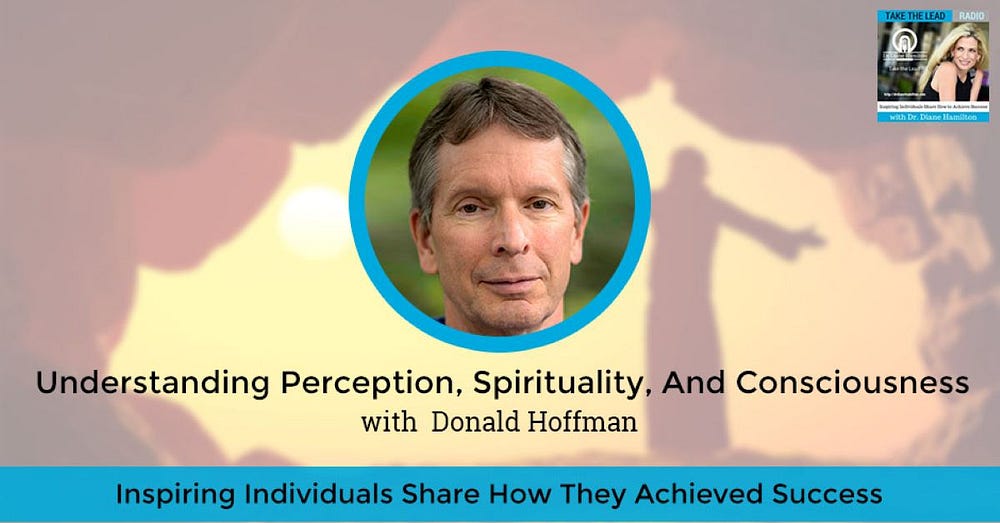
Hoffman often uses the word “reality” positively. So he does actually believe that there is a reality (i.e., despite the fact that, in 2019, he wrote a book called The Case Against Reality). Nonetheless, Hoffman also argues that we haven’t got direct (or even indirect) access to reality as posited by what he calls “physicalists”. (Hoffman, like Barnardo Kastrup, often means philosophical realism when he uses the word “physicalism”. ) Instead, we’ve only got access to the contents of consciousness. And that’s still the case even if those contents belong to a (as it were) collective of consciousnesses (i.e., a collective of what Hoffman calls “conscious agents”).
Hoffman’s position can be summed up in one word: idealism.
Yet, having just used the word “idealism”, it can be seen that Hoffman seems to be a little shy about using (or at least overusing) that term about his own positions. Perhaps that’s primarily because he doesn’t want to be too strongly associated with idealism. Alternatively, Hoffman may simply be keen on stressing the originality — and scientific nature — of his own conscious realism.
To sum up. Hoffman’s philosophical position of conscious realism can be seen as a new take on idealism — idealism with mathematical and scientific knobs on.
Donald Hoffman and Bishop Berkeley
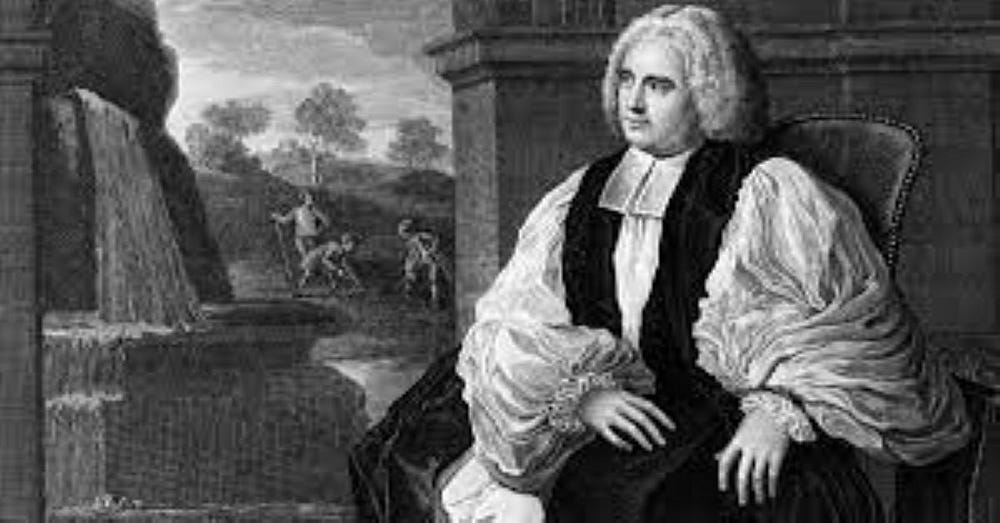
Like Donald Hoffman himself, Bishop Berkeley didn’t only have a problem with materialism as a metaphysical position: he also believed that materialism had profoundly negative repercussions for religion (or “spirituality”) itself, morality and society as whole. (These are things that Hoffman’s fellow idealist Bernardo Kastrup most certainly believes — primarily because he keeps on (stridently) stating that he does so. See here, here and here.)
So take the following subtitle from Berkeley’s A Treatise Concerning the Principles of Human Knowledge:
“Wherein the Chief Causes of Error and Difficulty in the Sciences, with the grounds of Scepticism, Atheism, and Irreligion, are inquired into.”
And, in Berkeley’s Three Dialogues between Hylas and Philonous, we find this subtitle:
“In opposition to sceptics and atheists.”
Interestingly, Hoffman often mentions “eastern religions” too (see here, here and here).
Hoffman’s arguments for his conscious realism are very similar to those of Berkeley. Indeed Berkeley’s own words are positively quoted by Hoffman himself.
Berkeley is, of course, well known for denying the existence of matter as a metaphysical substance.
Yet it will (or perhaps simply can) be argued that Hoffman doesn’t — exactly — reject matter. Instead, Hoffman believes that “matter is derivative”. That is, matter is “among the symbols constructed by conscious agents”.
Of course the question now is whether or not this 21st-century way of putting things extracts Hoffman from being an out-and-out idealist. After all, Berkeley himself (at least in a sense) also accepted matter. That is, he too believed that matter is simply a question of our (what he called) “sense-impressions” and “ideas”. (Hoffman sees his “icons”, instead, as stand-ins for what he calls “objective reality”.)
So does Hoffman go all the way and endorse Berkeley’s well-known statement? Namely:
“To be is to be perceived.”
Well, let Hoffman himself discuss Berkeley’s often-quoted one-liner here:
“When Samuel Johnson heard Berkeley’s theory that ‘To be is to be perceived’ he kicked a stone and said, ‘I refute it thus!’ (Boswell, 1986) Johnson observed that one must take the stone seriously or risk injury. From this Johnson concluded that one must take the stone literally. But this inference is fallacious.”
Berkeley himself wrote:
“The ideas imprinted on the sense by the Author of Nature are called real things: and those excited in the imagination being less regular, vivid and constant, are more properly termed [] images of things, which they copy and represent.”
So Berkeley believed that God (as it were) placed reality in our minds via what he called “images” and “ideas”. Hoffman, on the other hand, largely dispenses with references to “God” and simply focuses on the contents of consciousness instead.
That said, Hoffman doesn’t seem to have any deep problems with Berkeley’s positions as expressed above.
It’s of course the case that Berkeley — obviously! — didn’t include lots of data from evolutionary biology, cogntive science, quantum physics, mathematics, etc. (as Hoffman keenly does). But isn’t that a difference which doesn’t make a difference to the strong similarities between Berkeley’s and Hoffman’s philosophical positions?
In any case, the following passage is both Berkeley’s and Hoffman’s argument. In Hoffman’s own words:
“Resemblance between the phenomenal and relational realms: I argue that there need be no resemblance. But Berkeley has an ingenious argument that goes much further, and is probably valid. He argues that there cannot be a resemblance between them. [] The argument, in part, is this: ‘How can that which is sensible be like that which is insensible? Can a real thing, in itself invisible, be like a colour, or a real thing, which is not audible, be like a sound?’ [].”
Hoffman also endorses another of Berkeley’s positions here:
“Idealism proposes that the relational realm is made up of minds. It may be one mind, as in Berkeley’s proposal that it’s the mind of God, or it may be many distinct and finite minds in interaction. In the latter case, the behaviour of these minds has also been described by probabilistic laws.”
More clearly and technically, Hoffman takes a very clear Berkeleyan position when he states that “brains and neurons do not exist unperceived”. Of course this is exactly what Berkeley believed (though not, of course, about brains and neurons).
So it’s odd that Hoffman also states (as already quoted) that he “neither needs nor insists on the validity of Berkeley’s argument”. Yet just moments before writing that he’d also claimed that Berkeley’s “ingenious argument” is “probably valid”. Of course it can be argued that even if Hoffman finds Berkeley’s argument “valid” and “ingenious”, then that still doesn’t automatically mean that he “needs” it… Except for the fact that Hoffman does indeed offer an updated version of Berkeley’s argument.
So what about Hoffman’s position on Kant’s transcendental idealism?
Donald Hoffman and Immanuel Kant
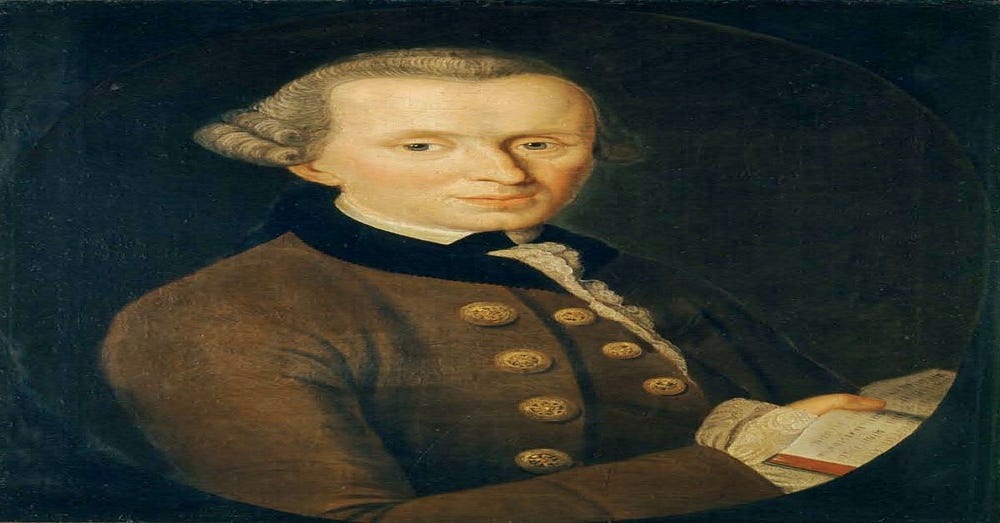
Hoffman has a problem with Immanuel Kant’s position on noumena. He believes that it’s not “scientific”. Less strongly, Hoffman believes that Kant’s position doesn’t look promising from a scientific perspective. As Hoffman himself puts it:
“This interpretation of Kant precludes any science of the noumenal, for if we cannot describe the noumenal then we cannot build scientific theories of it.”
So in what way (or sense) does Hoffman himself “describe the noumenal”; or, for that matter, offer us a “scientific theor[y]” of it? In other words, it’s very difficult to see what justification Hoffman has for pitting himself against Kant in this respect.
Perhaps the following words from Hoffman may answer that.
Hoffman then goes on to argue that
“[c]onscious realism, by contrast, offers a scientific theory of the noumenal, viz., a mathematical formulation of conscious agents and their dynamical interactions”.
Well, if conscious agents constitute the noumenal, then this will explain why Hoffman believes he offers us a description of it. But, of course, this isn’t Kant’s noumenal realm because that realm has nothing at all to do with consciousness, let alone with conscious agents and their “dynamical interactions”. (Even a cursory reading of Kant will show that.) Of course it may be the case that Hoffman believes that this is what Kant really meant (or simply should have meant) when he referred to noumena (or “things-in-themselves”).
All that said, Hoffman himself seems to (at least partly) understand these critical points when he writes the following:
“Some Kant scholars interpret him as saying that the relational realm, the thing-in-itself, is unknowable, so that the question of resemblance between the phenomenal and relational is moot.”
So, instead, Hoffman must really be describing (or at least claiming to describe) his very own “relational realm”. Hoffman must believe that conscious agents are (as he puts it) “behind the icons” and that such agents themselves constitute his deeper reality or relational realm. That is, Hoffman’s relational realm (or deeper reality) is actually… us! Or, at the very least, Hoffman’s deeper reality is (or is constituted by) all the conscious agents of the universe (together with their dynamical interactions).
More particularly, if Hoffman’s conscious realism really “offers a scientific theory of the noumenal”, then it’s not actually the noumenal that it’s offering a scientific theory of.
Of course that point may be misplaced in that, to Hoffman, the noumenal isn’t actually noumenal at all! In other words, Hoffman believes that he can offer a scientific theory of the noumenal (i.e., his relational realm) precisely because it is constituted by conscious agents (or at least by the contents of their consciousnesses). Kant, on the other hand, created a theory in which noumena were — by (his) own definition — not only beyond science, but also beyond (to use Hoffman’s term) conscious agents.
In addition, Hoffman’s “mathematical formulation” of his own relational realm is neither particularly mathematical nor about anything particularly scientific or concrete (i.e., empirical, observational or experimental). Instead, it amounts to little more than an idiosyncratic take on what Hoffman calls conscious agents; with the addition of gratuitous (even arbitrary) mathematical symbols, letters and graphs — all seemingly put together to provide a scientific gloss on a very-personal philosophy. (See my ‘Donald Hoffman’s Eye Candy: Conscious Realism’s Mathematical Models’.)
Conclusion
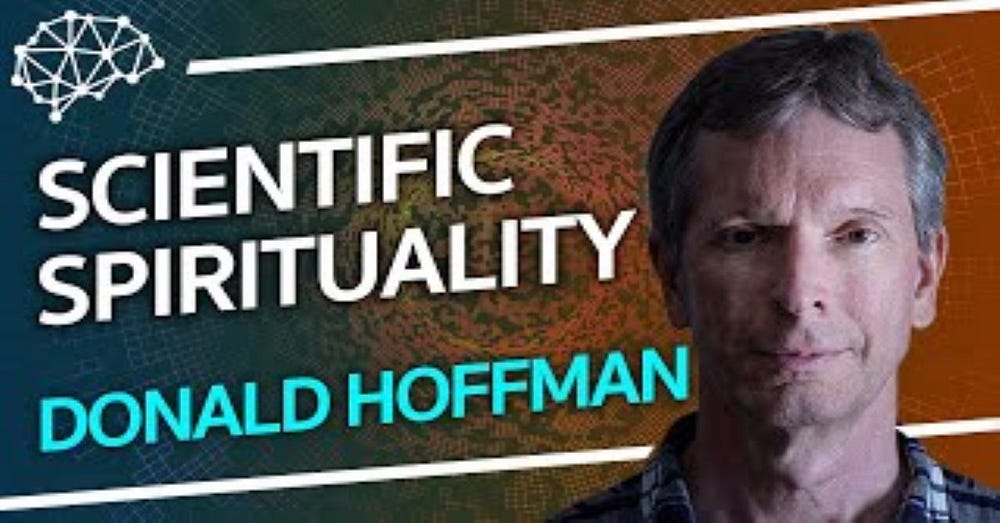
To sum up.
Hoffman’s conscious realism isn’t actually a scientific theory at all.
Of course Hoffman believes that it is a scientific theory — at least in large part.
And that’s primarily because Hoffman is under the impression that employing (often simply citing) lots of scientific data (or technical terms) will make his philosophical theory itself scientific.
********************************
*) See my ‘A Contradiction in Donald Hoffman’s (Idealist) Fitness-Beats-Truth Theorem’, ‘Donald Hoffman’s Philosophy of Consciousness and Reality: Conscious Realism’ and ‘Donald Hoffman’s Long Jump From Evolutionary Biology/Theory to Highly-Speculative Philosophy’.












No comments:
Post a Comment